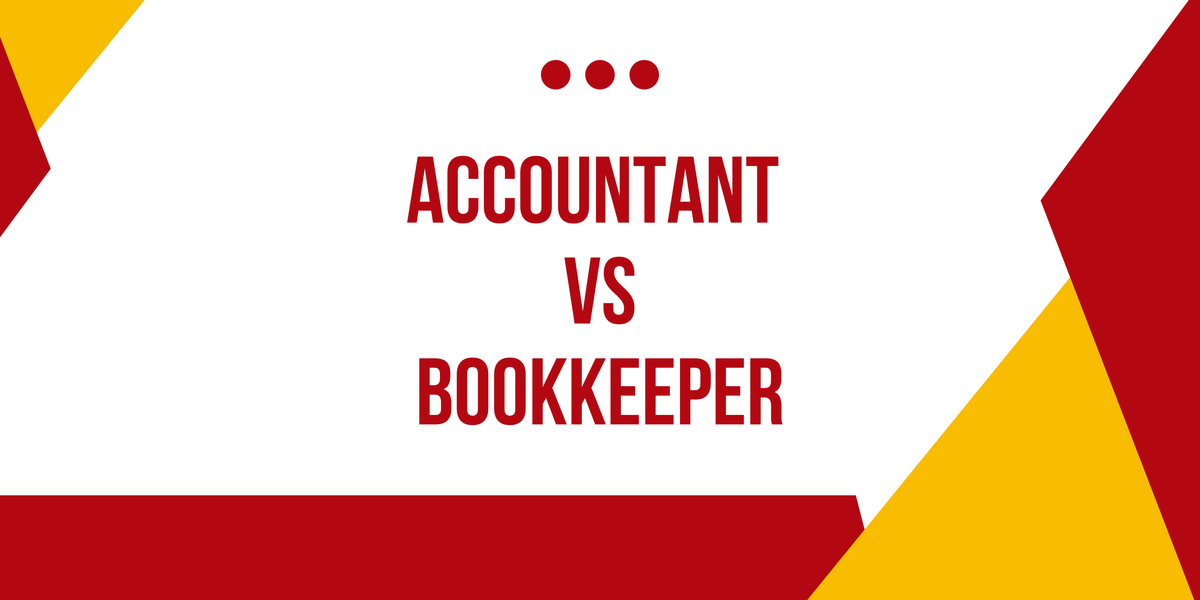Managing your business’s finances effectively starts with understanding the key players who can help you succeed: bookkeepers and accountants. While their roles may seem similar, they serve distinct purposes in maintaining your financial health.
Knowing the difference is crucial for making informed decisions about which professional you need—and when.
This article will guide you through the similarities and differences between bookkeepers and accountants, helping you identify the right expertise for your business.
What is Bookkeeping?
Bookkeeping is the foundation of any business’s financial management, focusing on recording and organizing daily financial transactions to ensure accuracy and clarity. It provides a systematic way to track the financial activities that keep your business running smoothly.
Core Functions of Bookkeeping
Bookkeeping involves managing the details of your financial records, including:
- Logging Transactions: Recording daily activities such as sales, expenses, and payments.
- Managing Payroll: Ensuring employees are paid on time and tracking related tax obligations.
- Tracking Payments: Monitoring accounts receivable and accounts payable to keep cash flow healthy.
- Summarizing Data: Organizing and categorizing transactions to create accurate financial summaries.
Optional Certifications
While bookkeepers aren’t required to be licensed, obtaining certifications can demonstrate expertise and add credibility. Common certifications include:
- QuickBooks Certified ProAdvisor: For proficiency in QuickBooks software.
- National Association of Certified Public Bookkeepers (NACPB): A widely recognized credential in the field.
- Xero Advisor Certification: This certification is for businesses using Xero accounting software.
What is Accounting?
Accounting goes beyond record-keeping—it’s the process of analyzing, interpreting, and using financial data to guide strategic decisions.
By transforming raw numbers into actionable insights, accounting plays a critical role in shaping a business’s financial health and long-term success.
when
Accountants use the data provided by bookkeepers to perform more advanced financial tasks, including:
- Reviewing Financial Statements: Ensuring accuracy and completeness in reports such as balance sheets, income statements, and cash flow statements.
- Preparing Reports: Creating detailed summaries of financial performance to meet internal needs or external compliance requirements.
- Offering Tax and Business Advice: Providing guidance on tax strategies, regulatory compliance, and overall financial planning to improve profitability and growth.
Where Accounting Begins
While bookkeeping focuses on recording transactions, accounting takes this data and moves it to the next level. It begins when bookkeeping ends by analyzing trends, identifying opportunities, and offering tailored strategies for achieving financial goals.
Accounting is not just about numbers; it’s about making informed decisions that drive your business forward, ensuring compliance, and optimizing financial performance.
Bookkeeping and accounting form a cohesive system supporting your business’s success.
Key Differences Between Bookkeepers and Accountants
While both bookkeepers and accountants play essential roles in financial management, their responsibilities and focus areas differ significantly.
Here’s a side-by-side comparison to clarify these distinctions:
Both roles are integral to a business's financial health, with bookkeepers focusing on maintaining accurate records and accountants providing insights to guide decision-making and long-term planning.
Understanding these differences helps businesses decide which professional—or a combination of both—they need.
Do You Need a Bookkeeper, an Accountant, or Both?
Determining whether to hire a bookkeeper, an accountant, or both depends on the specific needs and complexity of your business. Here’s how to decide:
When to Hire a Bookkeeper
A bookkeeper is ideal for small businesses or startups that need someone to handle routine financial tasks efficiently:
- Managing daily financial transactions, such as recording sales and expenses.
- Processing payroll and tracking payments.
- Maintaining accurate records to stay organized.
- Suitable when you’re on a tight budget and don’t require in-depth financial analysis.
When to Hire an Accountant
An accountant is a better fit for businesses with complex financial requirements or those focusing on growth:
- Preparing financial statements and offering strategic insights.
- Ensuring compliance with tax laws and industry regulations.
- Assisting with financial forecasting, budgeting, and scaling your business.
- Crucial when you need help making big financial decisions or managing complex reporting standards.
When to Hire Both
For businesses with high transaction volumes or complex financial systems, hiring both professionals can provide the best of both worlds:
- Bookkeepers maintain daily records, ensuring accuracy and organization.
- Accountants use these records to analyze trends, provide guidance, and help you achieve your financial goals.
Factors to Consider When Hiring
Hiring the right financial professional for your business requires careful evaluation. Here are key factors to consider when choosing a bookkeeper or accountant:
1. Experience
Consider the candidate’s industry-specific knowledge and hands-on expertise. Experience in your field ensures they understand your unique financial challenges and requirements.
- Look for candidates with industry-specific knowledge and proven hands-on expertise.
- Professionals familiar with your industry’s financial requirements will understand your unique challenges and opportunities.
2. Certifications
Look for relevant credentials that demonstrate their skills and proficiency.
- For bookkeepers, certifications like QuickBooks Certified ProAdvisor or Xero Advisor indicate proficiency with financial software.
- For accountants, credentials like Certified Public Accountant (CPA) or Chartered Accountant (CA) demonstrate advanced expertise in financial strategy and compliance.
3. Services Offered
Evaluate whether the professional can meet your specific needs, from managing payroll to providing tax advice. Ensure their expertise matches the tasks you require for your business.
- Assess whether the candidate can meet your specific needs, such as handling payroll, preparing tax documents, or providing financial advice.
- Confirm they are comfortable working with your preferred accounting software and systems.
4. Practical Skills vs. Academic Qualifications
While formal education is valuable, practical experience and problem-solving abilities often carry more weight. Look for candidates with a proven track record of delivering results.
- While formal education is important, prioritize candidates with a track record of problem-solving and practical experience.
- An experienced bookkeeper or accountant may outperform someone with a recent degree but limited real-world exposure.
By focusing on these factors, you can identify the right professional who aligns with your business needs and financial goals.
Conclusion
Understanding the roles of bookkeepers and accountants is essential for effectively managing your business’s finances.
Bookkeepers handle daily financial tasks, maintaining accurate records, while accountants provide strategic insights and advice to drive growth.
Choosing the right professional—or a combination of both—depends on your business’s needs, complexity, and goals.
By evaluating their skills, experience, and certifications, you can make informed decisions that ensure your business’s financial success.
FAQs
Can a bookkeeper and an accountant be the same person?
Yes, some professionals offer both bookkeeping and accounting services, especially in smaller businesses. However, it’s important to ensure they have the necessary qualifications and skills for each role.
How often should I consult my bookkeeper or accountant?
Bookkeepers are typically engaged daily or weekly for ongoing tasks, while accountants are consulted less frequently, often quarterly or during tax season, unless your business requires regular financial analysis.
Do I need financial software if I hire a bookkeeper or accountant?
While professionals often use software like QuickBooks or Xero, having your own software allows you to stay involved in your finances and easily share data with your bookkeeper or accountant. It also improves accuracy and streamlines collaboration.



Member discussion: